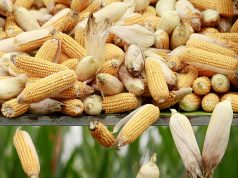Coffee stakeholders want industry council, pricing system
DAVAO CITY — With the National Coffee Roadmap 2017-2022 in place, stakeholders are now aiming to establish an industry council within the year and begin setting up a pricing system, especially for special varieties.
Department of Trade and Industry (DTI)-Compostela Valley Provincial Director Lucky Siegfred M. Balleque said in an interview that coffee growers have been pushing for the creation of a Philippine Coffee Council to consolidate and coordinate all efforts for the industry’s development.
“We have finalized the National Coffee Roadmap and we are working on, hopefully by 2017, on the creation of the Philippine Coffee Council,” Mr. Balleque said.
Industry representatives met on Jan. 5, he said, to discuss the council’s establishment and plan for the drafting of an executive order that will create it, to be signed by President Rodrigo R. Duterte.
Existing private groups such as the Philippine Coffee Board and the Philippine Coffee Alliance, which have already been undertaking interventions for the industry, are expected to continue their industry leadership within the council.
The five-year road map was presented during the 2nd National Coffee Congress held in Baguio City on Nov. 23-24, 2016.
Meanwhile, the DTI and the Department of Agriculture, along with economic development organization ACDI/VOCA, are now working on establishing a new pricing system for Philippine coffee, which will be based on international standards of cupping and grading.
“That (pricing) will be based on the quality of the coffee,” said Thellonius Trimmell, ACDI/VOCA chief of party.
Mr. Trimmel pointed out that quality coffee is known to be growing in the country, but other aspects such as post-harvest handling still need improvement.
“We want to convert from commercial grade coffee to specialty grade coffee that will be determined through a cupping process with a standard score of above 80 points for a premium price,” he said.
The cupping process will also be used to develop a profile of various Philippine coffee varieties, he added.
The DTI recently introduced four newly licensed coffee graders from Mindanao who could be tapped for cupping. They are: Daniel Byron Pantoja of Coffee for Peace, Omar Santos of Dayaw Coffee and Tea, Franco Roque of Meridian Specialty Coffee, and Pamela Jean Guingona of Imdalsa Cooperative.
ACDI/VOCA, through its US-funded Mindanao Productivity in Agricultural Commerce and Trade (MinPACT) Project, is also helping some 10,600 smallholders of coffee, cacao, and coconut improve output and increase their income.
The coffee program of MinPACT aims to transition Mindanao from a commercial grade coffee grower to a producer of fine Robusta and specialty Arabica coffee.
Mr. Trimmel said demand for high-quality and specialty coffee has been growing in the last decade, especially in the US, Japan, South Korea, Australia, and Europe.
“A lot of (operators of) coffee shops travel around the world, in coffee producing countries, to identify the highest quality coffee… They identify the bean being harvested, they make sure that the beans are harvested properly, ensure that the post-harvest processes are properly done and take those good and well-dried beans.” — Maya M. Padillo



